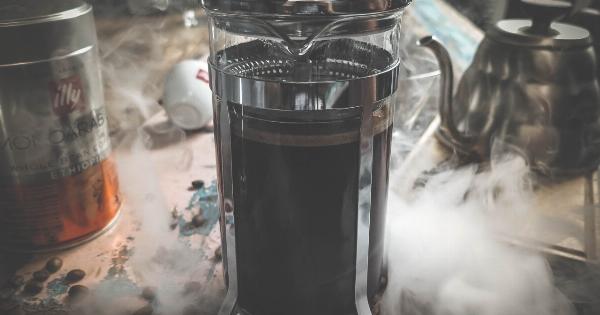Coffee, an indispensable drink in most people’s daily routines, is known for its unique taste, aroma, and ability to boost energy levels. However, the health benefits of coffee extend beyond just a morning pick-me-up.
Coffee contains antioxidants that can help fight against oxidative stress, which can lead to various health problems such as inflammation, aging, and chronic diseases.
Many people prefer their coffee hot while others prefer it cold, especially during warm weather.
But does the temperature of your coffee beverage impact the levels of antioxidants it contains? In this article, we will explore whether warm or cold coffee beverages are higher in antioxidants.
What are they?: Antioxidants in coffee
Antioxidants are molecules that can protect our body’s cells from damage caused by free radicals.
Free radicals are unstable molecules that are produced in our bodies during normal metabolism or when we are exposed to environmental factors like pollution, sunlight, or radiation. When free radicals accumulate, they can cause oxidative stress, leading to cellular damage, inflammation, and even DNA damage that can contribute to chronic diseases.
There are several types of antioxidants present in coffee including:.
- Chlorogenic acid: the most abundant antioxidant in coffee
- Caffeine: a natural stimulant that also has antioxidant properties
- Trigonelline: an alkaloid that gives coffee its unique flavor and also acts as an antioxidant
- Polysaccharides: compounds that can enhance the activity of other antioxidants in coffee.
Are warm coffee beverages higher in antioxidants?
When we heat coffee, the process can break down certain compounds that are responsible for its taste, aroma, and antioxidant content. For example, roasting coffee beans can lead to a loss of certain antioxidants.
However, the impact of warmth on the overall antioxidant levels in coffee is not clear-cut, and research has shown mixed results.
One study conducted in 2012 analyzed the antioxidant activity of hot and cold brewed coffee and found that both contained similar levels of phenolic compounds, which act as antioxidants.
Another study published in 2017 also found no significant difference in antioxidant levels between hot and cold brew coffee, but noted that cold brew coffee may have slightly higher levels of chlorogenic acid, a key antioxidant in coffee.
However, a study published in 2018 found that warm coffee had lower levels of certain antioxidants, including chlorogenic acid, compared to cold brew coffee.
In this study, researchers observed that cold brewing coffee led to a slower extraction process that preserved the antioxidants levels in the beverage.
Are cold coffee beverages higher in antioxidants?
Cold brew coffee has gained popularity in recent years, especially during summer when people crave a caffeine boost but prefer something refreshing. Cold brew coffee is made by steeping coffee grounds in cold water for several hours.
The process is slower, and the brewing temperature is lower than for hot coffee, leading to a unique taste and aroma.
Cold brew coffee also has a higher concentration of certain antioxidants such as chlorogenic acid and caffeine.
A study published in 2015 found that cold brewed coffee had higher levels of chlorogenic acid than hot brewed coffee, possibly because the cold brewing process results in a more prolonged extraction time that allows for a greater release of the compound. Another study published in 2018 compared the antioxidant activity of hot and cold brew coffee and observed that cold brew coffee had significantly higher levels of antioxidants than hot coffee.
Factors that impact antioxidant levels in coffee
The antioxidant levels in coffee can be influenced by several factors, including:.
- The type of coffee bean: different coffee varieties can have different antioxidant properties
- The roasting process: roasting coffee can lead to a loss of certain antioxidants, but also the development of new antioxidants
- The brewing method: the temperature and duration of the brewing process can impact the antioxidant levels in coffee
- The storage of coffee: storing coffee in proper conditions can preserve its antioxidant content
- The addition of milk or sugar: adding milk or sugar to coffee can decrease its antioxidant activity
Conclusion
Overall, the temperature of your coffee beverage, whether hot or cold, does not seem to have a significant impact on the antioxidant levels in coffee.
However, cold brew coffee may have slightly higher levels of certain antioxidants such as chlorogenic acid compared to hot brewed coffee. The antioxidant levels in coffee can be influenced by various factors, including the type of coffee bean, the roasting process, the brewing method, and storage conditions.
If you want to get the most antioxidants from your coffee, consider using high-quality coffee beans, storing them properly, and avoiding adding milk or sugar to your coffee.
And if you prefer cold coffee, give cold brew coffee a try for a refreshing and nutrient-packed beverage.




























